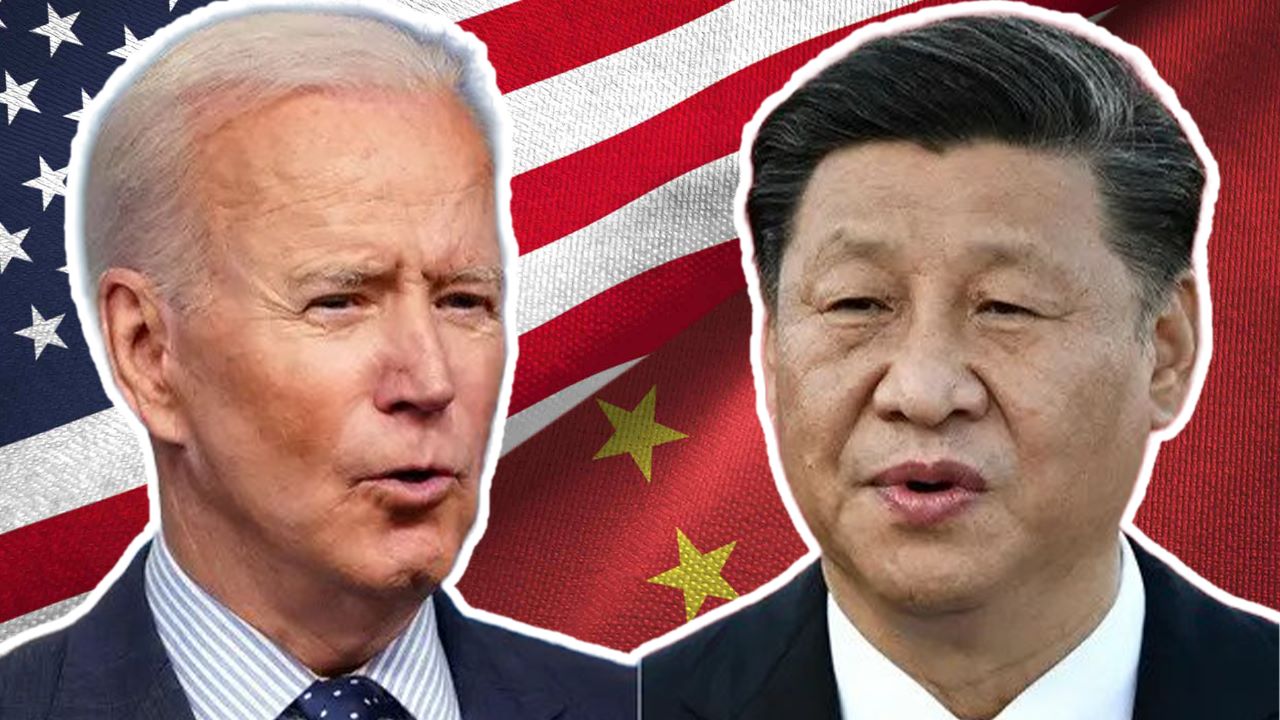In a recent survey spanning 24 countries, the United States has emerged as the more favorably viewed nation compared to China, marking the widest gap in almost two decades.
Spain ‘Rejects’ US F-35 Stealth Fighters; To Focus On ‘Made In Europe’ Eurofighter Typhoons
This annual study, conducted by a Washington-based think tank, Pew Research Centre, recorded a notable surge in negative opinions towards Beijing. The research involved over 30,000 respondents across these 24 countries and was carried out between February and April for the 2023 edition.
Traditionally, the global perception of these two superpowers has closely mirrored American political sentiment. During the George W. Bush administration, for instance, opinions about the US and China followed similar trajectories.
In the Barack Obama era, favorable views of the US rose while China’s reputation remained stagnant or worsened. Conversely, during Donald Trump’s presidency, positive perceptions of the US decreased, and opinions about the two countries became evenly divided.
However, under the leadership of President Joe Biden, America’s image has seen significant improvement, while perceptions of China have consistently trended negatively.
In this year’s survey, 59 percent of respondents expressed a favorable opinion of the US, compared to only 28 percent who viewed China positively. This marked the most significant gap in favorability between the two nations documented by the think tank since it commenced its surveys in 2005.
The research revealed that the preference for Washington over Beijing extended not only to developed countries but also to most other high-income nations, where the US was viewed more favorably by significant margins.
For instance, in Poland, 93 percent held a favorable opinion of the US, while only 21 percent did so for China.
In middle-income nations, such as India and Brazil, pro-US sentiments were prominent, with notable differences of 39 and 24 percentage points over China, respectively. Notably, China rated higher than the US in certain regions like Kenya and Nigeria.
Hungary stands out as the sole country where positive views of the United States are in the minority. In Hungary, under half of the respondents offer positive ratings for each superpower, indicating a balanced perception of the US and China.
This significant difference in perceptions between these two nations exemplifies the diverse and varied views held in different regions worldwide.
Factors Influencing Views
The report highlighted that various factors influenced views on China. While Chinese investments were positively viewed in many middle-income countries, this sentiment was less prevalent in nations with lower corruption levels or more civil liberties, according to metrics from Transparency International and Freedom House, respectively.
Interestingly, despite the overall high esteem for China, the research showed that a median of 72 percent viewed American technology favorably, only slightly higher than the 69 percent who held positive views of Chinese technology across the 24 countries surveyed.
However, in 10 nations, including the US, Chinese technology scored better than American technology. The division in global economic opinions also emerged, with the US slightly ahead of China.
In some European countries and Australia, more respondents saw China as the leading global economy. But in Italy, for example, 50 percent perceived China as the predominant economic power, contrasting with 31 percent believing it was the US.
The data pointed to a complex picture of global perceptions, indicating the need for ongoing monitoring, especially considering China’s recent economic slowdown.
Opinions regarding data security exhibit a mixed landscape. Overall, more individuals tend to express confidence in technology developed by American companies to safeguard personal data compared to technology from Chinese companies.
However, the views on protecting personal data by American technology vary widely. For instance, 81% of respondents in Nigeria believe that American technology protects personal data, whereas only 25% of those surveyed in Hungary share this sentiment.

Similarly, perceptions of Chinese technology’s capability to protect users’ data vary significantly. While 78% of Nigerians express confidence in Chinese technology for data protection, only 15% of Australians hold the same view.
One of the authors, Laura Silver from the Pew Research Centre, highlighted that while the survey results didn’t necessarily suggest a decline in China’s standing, diverse perspectives were observed, particularly among young adults, offering a mix of positive views about China and a lack of exposure to crucial historical events and political knowledge.
Silver emphasized the nuanced nature of international opinions, suggesting that the perception of global leadership is not a clear-cut win or loss for any one country.
- Contact the author at ashishmichel(at)gmail.com
- Follow EurAsian Times on Google News




